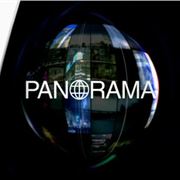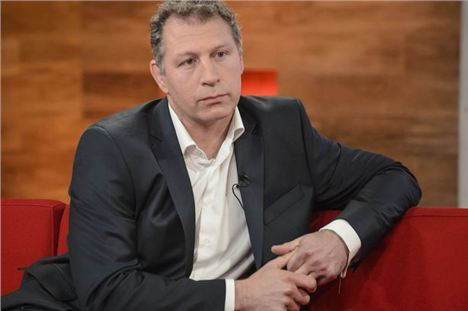THE man who broke the Jimmy Savile story and the editors of Panorama and Dispatches will lead a hard-hitting debate on the state of British TV current affairs, next week in Liverpool.
It's the first time in a decade that such a senior line-up of documentary makers have taken part in a public debate, say organisers, and marks a major – and timely - coup for the University of Liverpool which is staging it.
Changing
After a lengthy battering from 2012's Leveson Inquiry it seemed things could get no worse for the UK media until late last year when the Jimmy Savile scandal was revealed. Heads rolled across the BBC, including that of the director general. It soon became apparent that far from documenting the news, British TV current affairs had become the news.
The Current Affairs Television: Then and Now conference will turn its eye to recent programming, as well as examine how journalism and current affairs programmes have adapted to the rapidly changing media landscape of the 21st century.
It will also consider how effectively this central element of public service television serves the public - and the public are invited to show up.
Among those presenting are Mark Williams-Thomas, investigator and presenter of The Other Side of Jimmy Savile for ITV’s Exposure, Steve Boulton, former editor of World In Action, Tom Giles and Daniel Pearl, editors of BBC’s Panorama and Channel 4’s Dispatches respectively, and Roger Graef OBE, the renowned documentary filmmaker.
The day-long conference, organised by Pete Goddard, from the Department of Communications and Media, will also feature a host of ex-TV producers-turned academics.
Pete said: “At the back end of last year, television current affairs uncovered one of the year’s most talked stories, the Jimmy Savile scandal, and then itself became the subject of controversy.
Cover-up
“This conference will bring together those involved in television current affairs and academics to test the present health of television current affairs and to strengthen links between current affairs practitioners and academics and stimulate further research into this important strand of public service.”
Topics up for debate will include Covering the Cover Up: The Hutton Report and the death of David Kelly, the role of the current affairs presenter and the London-centric orbit of current affairs television. It will also ponder whether current affairs can still speak “truth to power” in the face of constrained budgets, lack of competition from other programmes and fear of complaint and legal action.
How's about that then, media watchers?
*Current Affairs Television: Then and Now’ will take place on Monday, 21 January 2013, from 9am – 5.30pm, at The Library, School of the Arts, 19-23 Abercromby Square, University of Liverpool. Tickets, £25 (students £15) from here
'The dumbing down of television'
In an overview, senior media lecturer Pete Goddard writes...
"It is now 15 years since 1998, a pivotal year for current affairs television in Britain, and this is a good moment to take stock. 1998 saw the demise of World in Action and dire warnings in various academic and industry surveys about the "dumbing down of television", including claims that “documentary is dead” on ITV, and that “current affairs is in crisis, and is possibly in terminal decline”.

"The same year saw the launch of digital television, heralding an explosion of channels, new uses for television and media convergence. And, simultaneously, the internet was beginning to establish itself as a popular medium/ platform, a rival or even successor to television.
"It was difficult to predict a bright future for television current affairs in Britain, and particularly for long-running series such as Panorama.
"Things initially got worse rather than better, with Panorama moved to a Sunday night graveyard slot in the early 2000s, and Tonight, ITV’s successor to World in Action, focusing on emotion and popular appeal at the expense of the more thorough-going approach to public affairs that had for so long been the hallmark of its predecessor.
"But now, with Panorama restored to Monday evening prime-time alongside C4’s Dispatches, the long running current affairs series seems to have beaten the odds, capable at its best ofproducing urgent, vital and agenda-setting journalism.
"Alongside them, Exposure –responsible for the extraordinary Jimmy Savile revelations (claimed by the Guardian to bethe most publicly influential TV programme since Cathy Come Home!) – is fast establishing itself as a worthy rival and re-establishing ITV’s reputation for ‘serious’ current affairs programming.”












